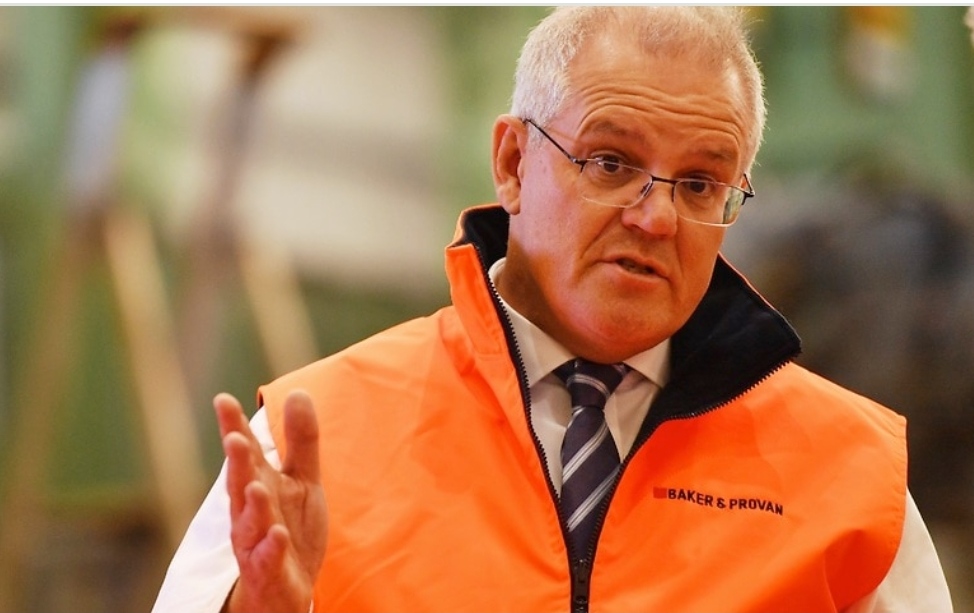Australian Coal Industry Will Carry On For Decades Declares PM Scott Morrison

Scott Morrison, visiting a factory in Sydney, says coal mining has a future in Australia.
Scott Morrison has rightly declared that he doesn’t think a global agreement to reduce reliance on coal power is the end for Australia’s industry he believes will continue for decades. Though his British Counterpart, Boris Johnson, has described the agreement at the COP26 climate summit as coal’s “death knell”.
Countries agreed at Glasgow to phase down – but not phase out – the use of coal power after pressure from countries including India to water down the declaration. So Boris Johnson is talking about brush coal mines, whereas Morrison is talking about Australian Coal mines.
Some countries are already playing games and are trying to paint India as the biggest polluter even more than China. These are the very countries which have been devastating and polluting the planet for the last three hundred years. Well India has made its own plan and will stick by it. In case the technological advanced countries must cough out the money to enable others to phase out Carbon fuel.
So when Morrison says “No, I don’t believe it did (sound the death knell of coal),” He is absolutely right, He said that, all of those who are working in that industry in Australia, they’ll continue to be working in that industry for decades to come. This coal is needed by India for its power generation and also by Australia.
Mr Morrison said there would be a transition over a long period of time, and would not apologise for standing up for Australia’s security or economic interests. Though some Liberal MPs want Australia to commit to stronger 2035 emissions cuts. Australia’s target to achieve net-zero emissions by 2050 relies on voluntary action from the private sector. It anticipates getting 85 per cent of the way there by 2050 using known technology and relies on “further technological improvements” to make up the gap to zero.
NSW MP Dave Sharma thinks cutting emissions between 40 and 45 per cent by this time is achievable. It’s a modest stretch, but it’s not a big stretch,” he told Sky News. He insists Australia must lessen its reliance on fossil fuels if it’s serious about cutting emissions. “The direction of travel is clear; it’s away from fossil fuels,” Mr Sharma said.
The government expects to slash emissions by up to 35 per cent on 2005 levels by 2030. But Energy Minister Angus Taylor has ruled out turning this projection into a target. “What we also signed up to was a request to increase aspiration for 2030 over time… recognising national circumstances. “ He further added “We are one of the biggest exporters of energy products in the world. That’s a pretty unique circumstance and we’ll adapt to that.”
Any boosting up of Australia’s 2030 emission target will surely cost huge amount of money and will naturally prove to be very expensive
“If that’s the goal, (if) you want to be poor, you don’t like your standard of living, then stop exporting the stuff that makes you the dollars and you can be poor,” he said in the NSW Hunter Valley. United Nations climate change special adviser Robert Orr doesn’t think global investors will be rushing to support coal mining anywhere.
“It’s safe to say that the so-called Australian way to net zero was pretty heavily criticised in Glasgow by a range of parties,” he told ABC radio.
“It’s unfortunate for the Australian government, or any government, to dig in around commitments currently made.”
Opposition Leader Anthony Albanese plans to release Labor’s 2030 emissions target before the year’s end. He accuses the Morrison government of hypocrisy for signing up to a UN push for higher 2030 targets only to walk away from it.



